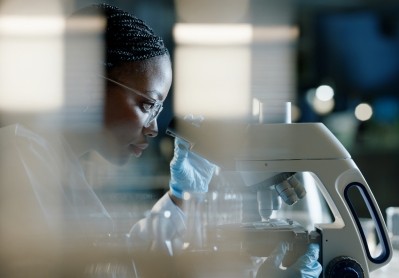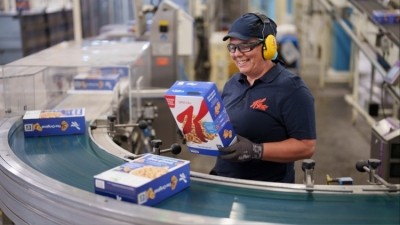News
Revo Foods unveils ‘world’s first’ to scale 3D printed protein factory

At full capacity, the facility – known as the Taste Factory – can produce up to 60 tons of 3D printed food products per month. Revo Foods’ flagship product is ‘The Filet’, a meat alternative SKU inspired by salmon.
By utilising 3D printing technologies, the manufacturer is able to avoid the negative impact that industrial production methods typically have on the nutrient profile of products – since 3D printing is a milder process that doesn’t utilise high temperatures and pressure, the end product retains more of its micronutrients that would otherwise have been lost.
Robin Simsa, Revo Foods chief executive, said: “With the Taste Factory, we are showcasing that this technology works on an industrial scale.
New generation of innovation
“This enables a new generation of food innovations. With 3D Structuring, we can create entirely new textures using simple but nutrient-rich ingredients like mycelium, creating products that are just so much more exciting.”
Revo Foods said it was working with various partners on joint product developments to be presented in early 2025. The future applications focused on personalised nutrition and mass customisation, which will allow for the creation of tailored food solutions to meet individual consumer needs.
Head of food tech Niccolo Galizzi added: “Biomasses like fermented mycelium are trending because their natural consistency requires little processing and they are very nutrient-dense. However, in its pure form, it often tastes bland.
“We believe that for real change, sustainability and culinary pleasure must go hand in hand. We are already working on the next innovations with mycoprotein, which is a lot of fun using 3D Structuring technology since it offers many possibilities to design the product exactly to the liking of consumers.”
The Food Fabricator X2
Revo Foods announced its plans to open a 3D printing production facility in January this year that would utilise The Food Fabricator X2, the ‘world’s first’ industrial production method for 3D-printed foods, featuring a novel multi-nozzle system that allows for continuous food production.
Using a high-precision extrusion system, manufacturers can combine different ingredients with each other in any predefined structure while facilitating ‘mass customisation’ – flexible control of product parameters such as sizes, shapes, materials or texture without the need for hardware adjustments during the process.
Meanwhile, food manufacturers could soon be able to embrace on demand 3D printing to replace broken parts on the production line, thanks to new technology developed by industrial 3D printing firm Addition Design.
















